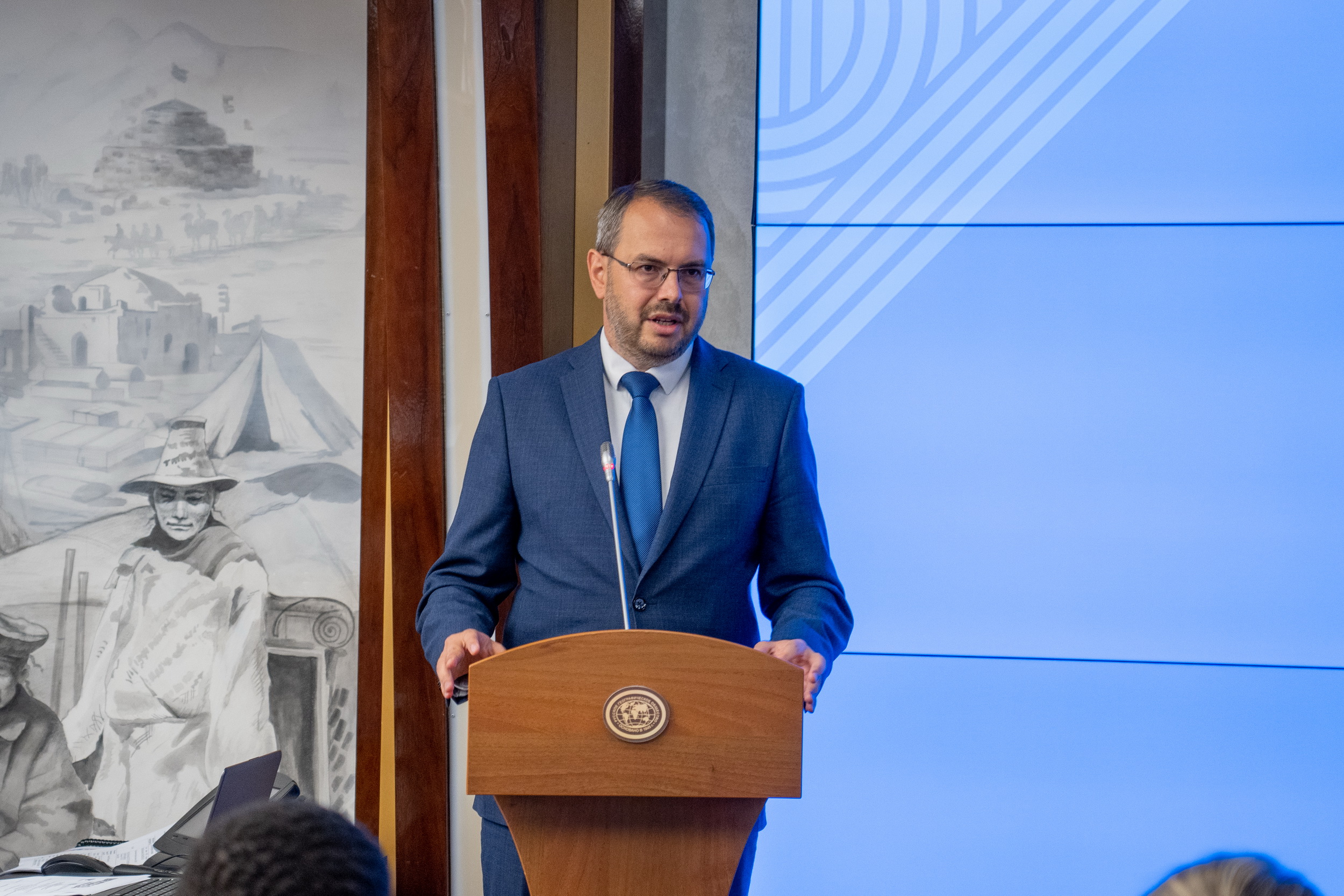The official ceremony establishing the BRICS Geographer’s Day took place on August 18, 2024 at the Russian Geographical Society (RGS). Representatives from the BRICS countries gathered in Moscow to mark the occasion.
Speaking on behalf of the Russian Ministry of Science and Higher Education, Deputy Minister Konstantin Mogilevsky stated: “BRICS is a unique group that encompasses all geographical zones of scientific interest. Today, taking into account the newly joint countries, our opportunities are expanding. It is an honor for us to host international guests in this expanded format”. The representative of the Russian Ministry of Science and Higher Education extended his gratitude to RGS, particularly to its first vice-president Nikolai Kasimov for organizing the event and generous hospitality.
 |
 |
Guests were also congratulated by the representatives from the Russian Ministry of Foreign Affairs, Rossotrudnichestvo, and the International Centre for Innovations in Science, Technology and Education.
Speakers drew particular attention to the joint expeditions conducted by BRICS countries. This practice has been successfully implemented in recent years, including several joint expeditions to northeastern regions of India and southern China. Additionally, in late 2022, a joint expedition was conducted on the Russian vessel “Akademik Boris Petrov” in northern Brazil, near the Amazon River. The expedition yielded unique scientific data on the impact of the world’s largest river system on the ocean’s biochemical and pollutant balances, as well as its physical and chemical systems. This year, a Second Antarctic Expedition is also planned from November 2024 to January 2025.
The date chosen for the establishment of the BRICS Geographer’s Day marks the anniversary of the foundation of the Russian Geographical Society in 1845 by the Imperial Decree issued by Emperor Nicholas I. The importance of the geographical sciences is not forgotten in the 21st century. Today, nearly two centuries after the establishment of RGS, Russian scientists and representatives from BRICS countries continue to conduct research together, with their scientific potential providing a new momentum for international cooperation.
International participants gave presentations on recent trends and developments in geographical sciences in their respective countries and engaged in discussions on future joint projects. One such proposal on the establishment of a unified Network of Geographical Societies within BRICS was made by a representative from South Africa This initiative would enable more resources and expertise to be allocated to scientific research and ensure international cooperation in studying and preserving unique natural territories.
Following the official ceremony, participants went on an excursion to the RGS headquarters, where they were able to see unique historical documents and maps, as well as learn about RGS rich history and achievements.
 |
 |
The establishment of the BRICS Geographer’s Day marks an important step in developing international cooperation in geographical sciences and research. The event did not solely focus on official ceremonies, it served as a starting point for an international expedition by BRICS countries “Wildlife Conservation on Protected Natural Territories in Siberia,” aimed at studying unique natural territories in Siberia.
In the coming days, participants will become familiar with Siberia’s rich history and natural beauty, visit museums such as “House of the Snow Leopard” and “Dendrarium Berendey,” take an excursion to the Sunduki Mountains nature reserve in Republic of Khakassia, and participate in seminars on creating inclusive routes for visually impaired individuals on protected natural territories. The expedition will also include visits to museums such as Shushenskoe and ecological excursion complexes in Abaza.
This scientific expedition will be an important step in the development of international cooperation between BRICS countries and will serve as a basis for the subsequent development of initiatives to preserve unique natural territories both in Siberia and in other BRICS countries.
